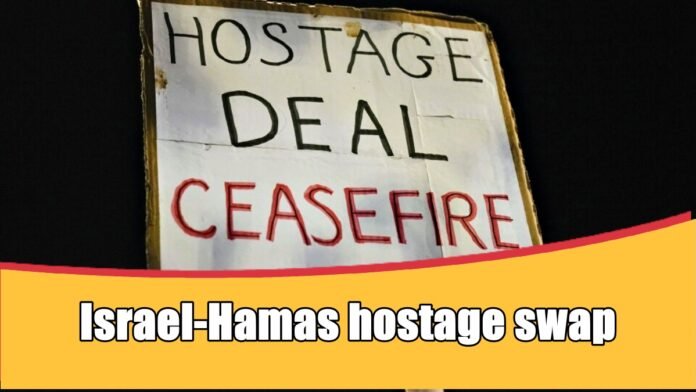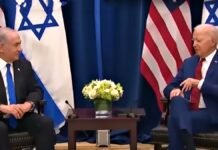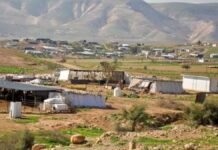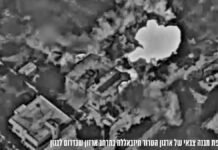
New Delhi: The hopes of a breakthrough deal to end the brutal and bloody seven-week-old war between Israel and Hamas in Gaza have been dashed, as the release of hostages under a temporary truce will not happen before Friday, Israel’s national security adviser said. The deal, which was mediated by Qatar and the United States, involved a four-day ceasefire, the entry of humanitarian aid into Gaza, and the exchange of at least 50 hostages held in Gaza for at least 150 Palestinians jailed in Israel.
The deal was expected to be announced and implemented on Thursday, but Israeli media reported that there was a 24-hour delay because the agreement was not signed by Hamas and mediator Qatar. Israeli National Security Adviser Tzachi Hanegbi said in a statement that the negotiations on the release of the hostages were advancing and continuing constantly and that the start of the release would take place according to the original agreement between the sides.
The hostages were captured by Islamist gunmen during the October 7 attack on Israel, which surprised the government and shocked the Israelis. Five hostages have been recovered alive, while the fate of the others remains unknown. Israel says 1,200 people were killed, mostly civilians, and about 240 hostages of different nationalities were taken hostage by Hamas. In retaliation, Israel has subjected Hamas-ruled Gaza to a siege and relentless bombardment, killing more than 14,000 Gazans, around 40% of them children, according to medical officials in the territory.
The Red Cross will be able to visit any remaining hostages in Gaza, Israeli Prime Minister Benjamin Netanyahu said in a late-night press conference on Wednesday, where he made no mention of a potential delay in the deal. He also said that the 50 hostages would be released over four days at a rate of at least 10 daily and that the truce could be extended day by day as long as an additional 10 hostages were freed per day. Israel’s justice ministry published a list of 300 names of Palestinian prisoners who could be freed.
Hamas said the initial 50 hostages would be released in exchange for 150 Palestinian women and children imprisoned in Israel. Hundreds of trucks of humanitarian, medical, and fuel supplies would enter Gaza, while Israel would halt all air sorties over southern Gaza and maintain a daily six-hour daytime no-fly window in the north, Hamas said.
The deal, the first in a nearly seven-week-long war, was welcomed by the United States, which hoped that aid would begin reaching Gaza in large volumes within the next few days, White House national security spokesperson John Kirby said. The deal was also a source of relief for the families of the hostages, who were anxiously waiting for any news of their loved ones. Gilad Korngold, who had seven of his family members, including his 3-year-old granddaughter, taken hostage, said he wanted everybody back, but he thought the children and women should be prioritized, as they were most fragile.

However, the deal also faced some criticism from some Israelis, who accused Netanyahu of giving in to Hamas and endangering the security of the country. They also questioned the credibility of Hamas, which has violated several previous ceasefires and continued to fire rockets at Israel. Some Palestinians, on the other hand, said the deal was not enough to address the root causes of the conflict, such as the Israeli occupation, blockade, and settlement expansion in the West Bank and East Jerusalem. They also demanded the release of all Palestinian prisoners, not just a fraction of them.
The deal, if implemented, could pave the way for a lasting peace between Israel and Hamas, or it could collapse and lead to a resumption of hostilities. The next few days will be crucial to determine the fate of the hostages, the war, and the region.



















































